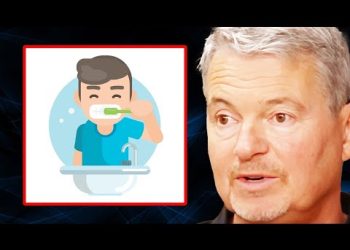Introduction
In the realm of modern medicine, evidence-based practice is the gold standard. The goal is to retain practices that prove effective and discard those that do not. However, due to medical inertia, the process of phasing out outdated methods is often slow. It’s crucial for individuals to consult with their healthcare providers before making any healthcare decisions.
The Fever Phobia
A common practice both in medical settings and at home is the use of fever-reducing medications. Many people misunderstand fever as an ailment rather than a symptom indicating that the body is fighting an infection. In reality, a moderately increased body temperature can enhance the immune response. Unless in the case of extreme fever or vulnerable individuals, allowing a fever to run its course can be beneficial.
Early Introduction to Allergens
For many years, parents were advised to avoid giving children peanut-based products to prevent allergies. However, research tells a different story. Introducing allergenic foods early, starting as young as six months, can actually reduce the likelihood of developing allergies to these foods later on.
Rethinking Meniscus Surgery
When diagnosed with a torn meniscus, many patients believe that surgery is their only recourse. However, studies comparing surgery to physical therapy show similar improvements over time. In many cases, conservative treatment may suffice, which underscores the importance of patient education and informed decision-making.
Unnecessary Pelvic Exams
Some healthcare providers require pelvic exams before prescribing birth control, a practice not supported by evidence-based guidelines. According to the CDC, a pelvic exam is not necessary to prescribe contraceptives, and mandating it could lead to negative health outcomes by limiting access to birth control.
The Myth of Complete Bed Rest
Common advice for injuries like back strain or ankle sprains is extensive bed rest. However, prolonged immobility can hinder recovery rather than aid it. While some initial rest is beneficial, gradual movement is crucial for healing and maintaining circulation.
Ineffectiveness of Magnesium for Leg Cramps
Many believe magnesium supplements can alleviate nocturnal leg cramps. However, randomized clinical trials show that magnesium provides no relief from these cramps. It is more beneficial to investigate and address the root cause of the cramps instead.
Misconceptions About Pink Eye
Pink eye, or conjunctivitis, often does not require antibiotics since it is usually viral. Misguided demands for antibiotics can create unnecessary treatments and potential harm. It’s important to consult healthcare professionals to determine the necessity of antibiotic therapy.
The Reality of Flat Feet
There is a wide belief that flat feet need to be corrected with insoles or orthotics. However, findings suggest that flexible, non-painful flat feet do not benefit from these interventions. Overprescribing insoles for asymptomatic flat feet complicates care without offering significant benefit.
Pre-operative Testing: When Less is More
Pre-operative testing is essential for high-risk surgeries, but often unnecessary for low-risk procedures like cataract surgery. Excessive testing provides little benefit and can lead to increased healthcare costs and patient anxiety. Patients should feel empowered to question the necessity of such tests.
Unnecessary Virus Testing
When patients present with symptoms of a viral infection, pinpointing the exact virus is often unnecessary, as it does not change the treatment plan. Exceptions exist when specific treatments are available, but generally, identifying the virus for common colds offers little benefit.
For more on health myths versus facts, stay informed and consult reliable sources. Always prioritize well-being by staying happy and healthy.











